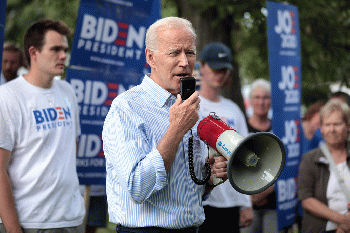It seems a week cannot go by without US Secretary of State Antony Blinken bringing up the specter of the 'rules-based international order' as an excuse for meddling in the affairs of another state or region.
The most recent crisis revolves around allegations that China has dispatched a fleet of more than 200 ships, part of a so-called 'maritime militia', into waters of the South China Sea claimed by the Philippines. China says that these vessels are simply fishing boats seeking shelter from a storm. The Philippines has responded by dispatching military ships and aircraft to investigate. Enter Antony Blinken, stage right:
"The United States stands with our ally, the Philippines, in the face of the PRC's maritime militia amassing at Whitsun Reef," Blinken tweeted. "We will always stand by our allies and stand up for the rules-based international order."
Blinken's message came a mere 18 hours after he tweeted about his meeting in Brussels with NATO.
"Our alliances were created to defend shared values," he wrote. "Renewing our commitment requires reaffirming those values and the foundation of international relations we vow to protect: a free and open rules-based order."
Our rules, our order
What this actually means, of course, is that the order is rules-based so long as it is the nation called America that sets these rules and is accepted as the world's undisputed leader.
Blinken's fervent embrace of the 'rules-based international order' puts action behind the words set forth in the recently published 'Interim National Security Strategy Guidance', a White House document which outlines President Joe Biden's vision "for how America will engage with the world."
While the specific term 'rules-based international order' does not appear in the body of the document, the precepts it represents are spelled out in considerable detail, and conform with the five pillars of the "liberal international order" as set forth by the noted international relations scholars, Daniel Duedney and G. John Ikenberry, in their ground-breaking essay, 'The nature and sources of liberal international order', published by the Review of International Studies in 1999.
The origins of this "liberal international order" can be traced back to the end of the Second World War and the onset of a Cold War between Western liberal democracies, helmed by the United States, and the communist bloc nations, led by the Soviet Union and the People's Republic of China. The purpose of this order was simple - to maintain a balance of power between the US-led liberal democracies and their communist adversaries, and to maintain and sustain US hegemony over its liberal democratic allies. This was accomplished through five basic policy 'pillars': Security co-binding; the embrace of US hegemony; self-limitation on the part of US allies; the politicization of global economic institutions for the gain of liberal democracies; and Western "civil identity."
All five are emphasized in Biden's interim guidance, in which the president openly advocates for "a stable and open international system." It notes that "the alliances, institutions, agreements, and norms underwriting the international order the United States helped to establish are being tested."
The faltering empire's flaws and inequities
Biden also observed that the restoration of this international order "rests on a core strategic proposition: The United States must renew its enduring advantages so that we can meet today's challenges from a position of strength. We will build back better our economic foundations; reclaim our place in international institutions; lift up our values at home and speak out to defend them around the world; modernize our military capabilities, while leading first with diplomacy; and revitalize America's unmatched network of alliances and partnerships."
All five of Duedney's and Ikenberry's policy 'pillars' can be found embedded in these - and other - statements contained in the guidance.
(Note: You can view every article as one long page if you sign up as an Advocate Member, or higher).






